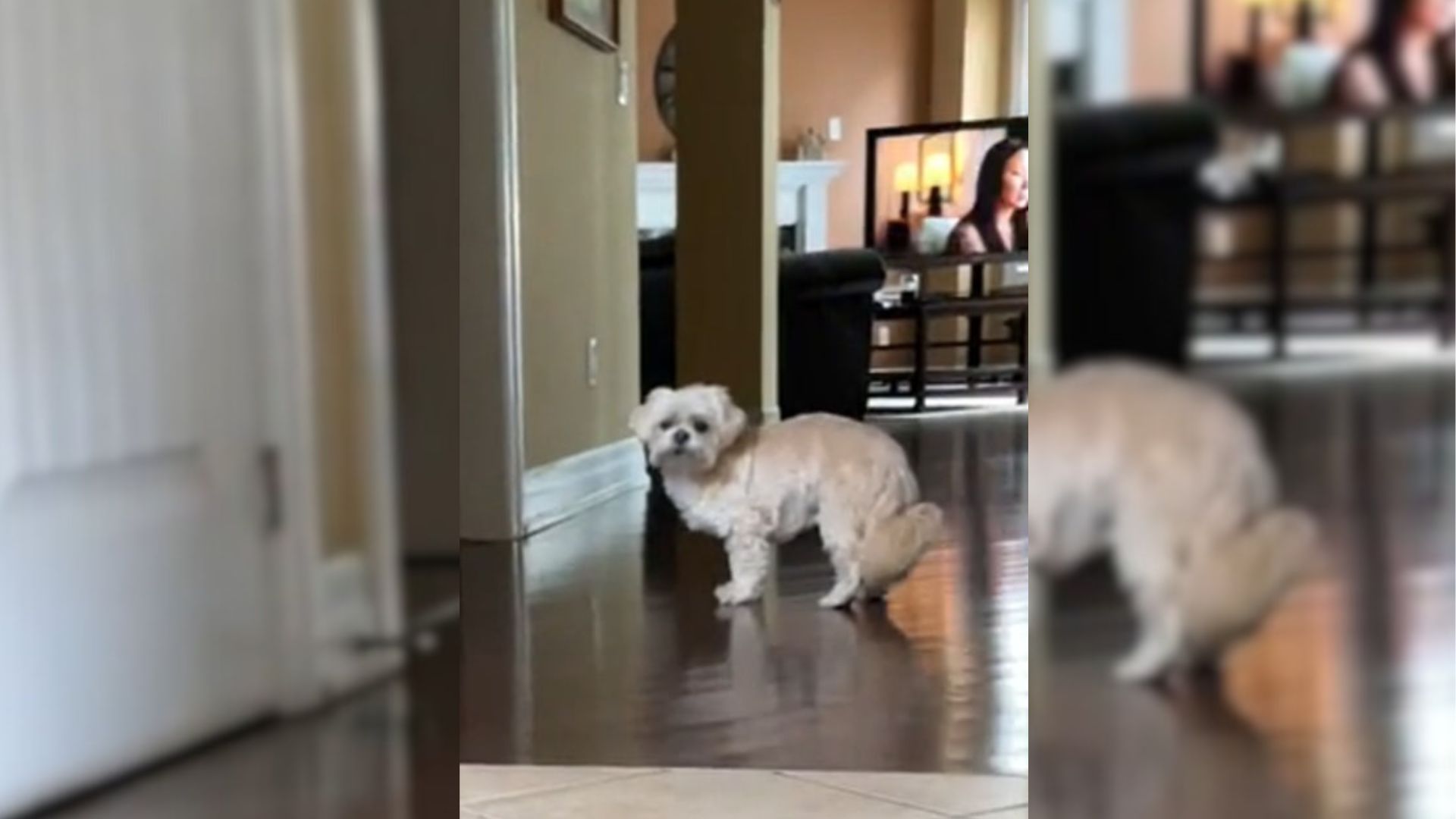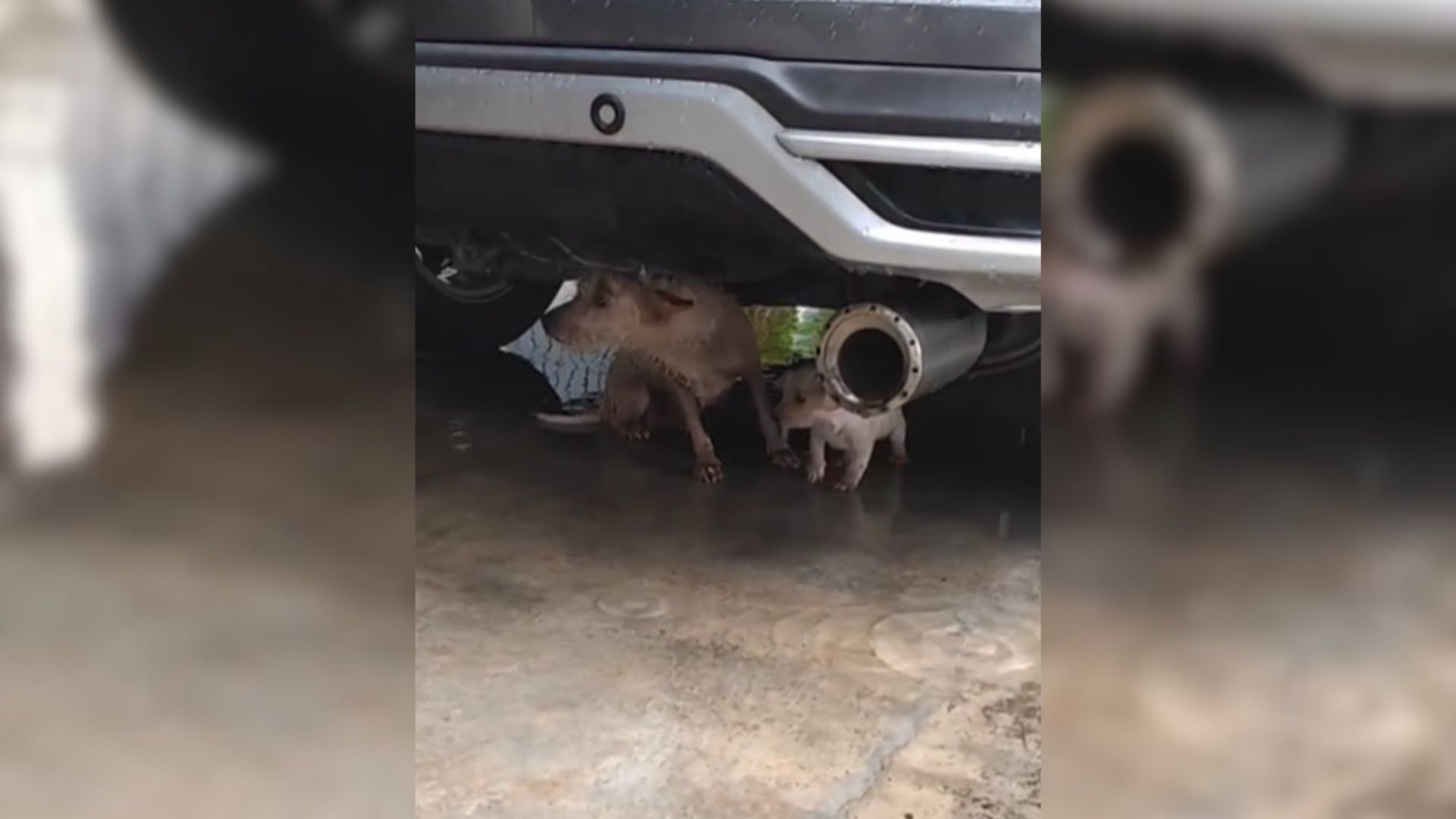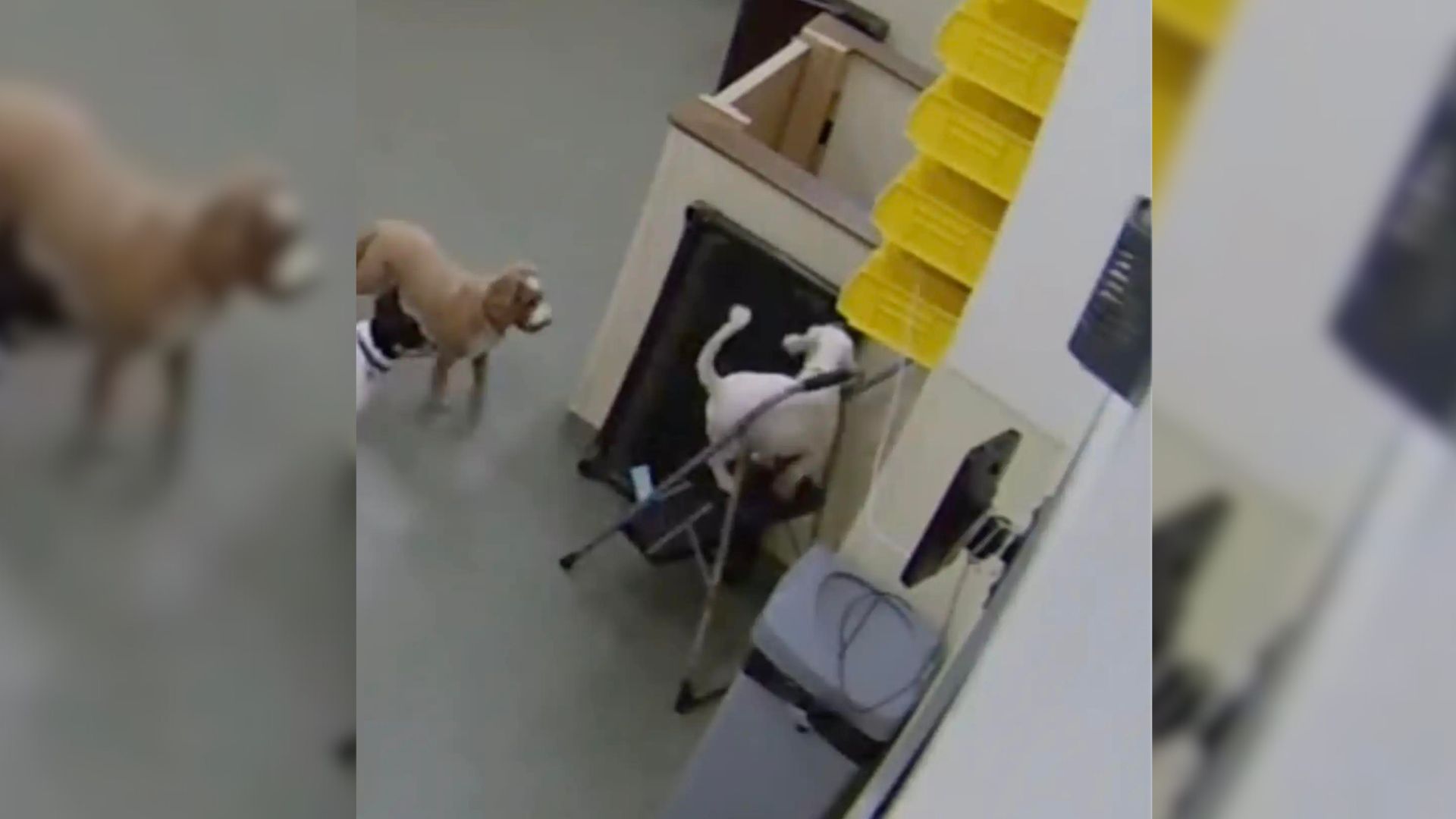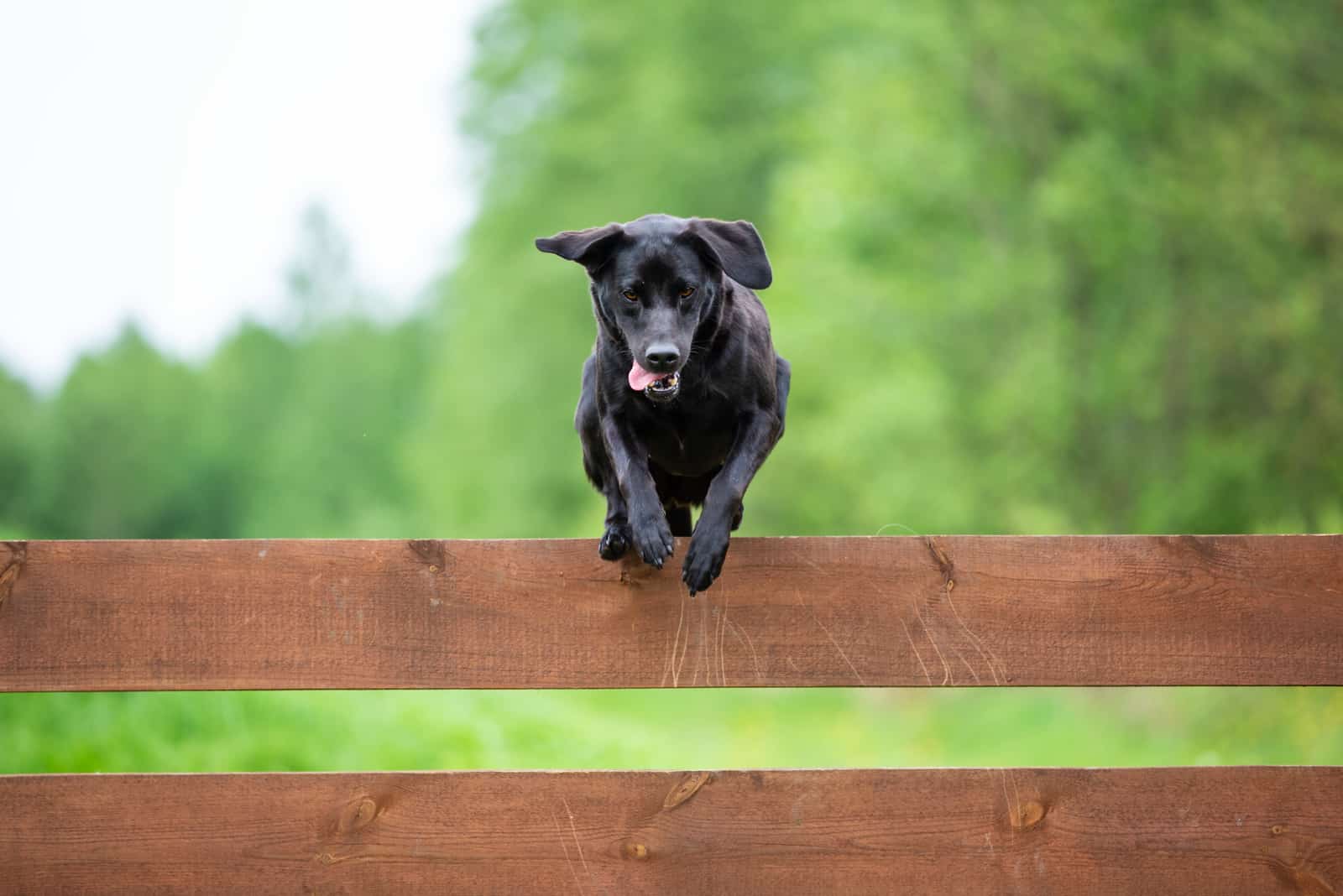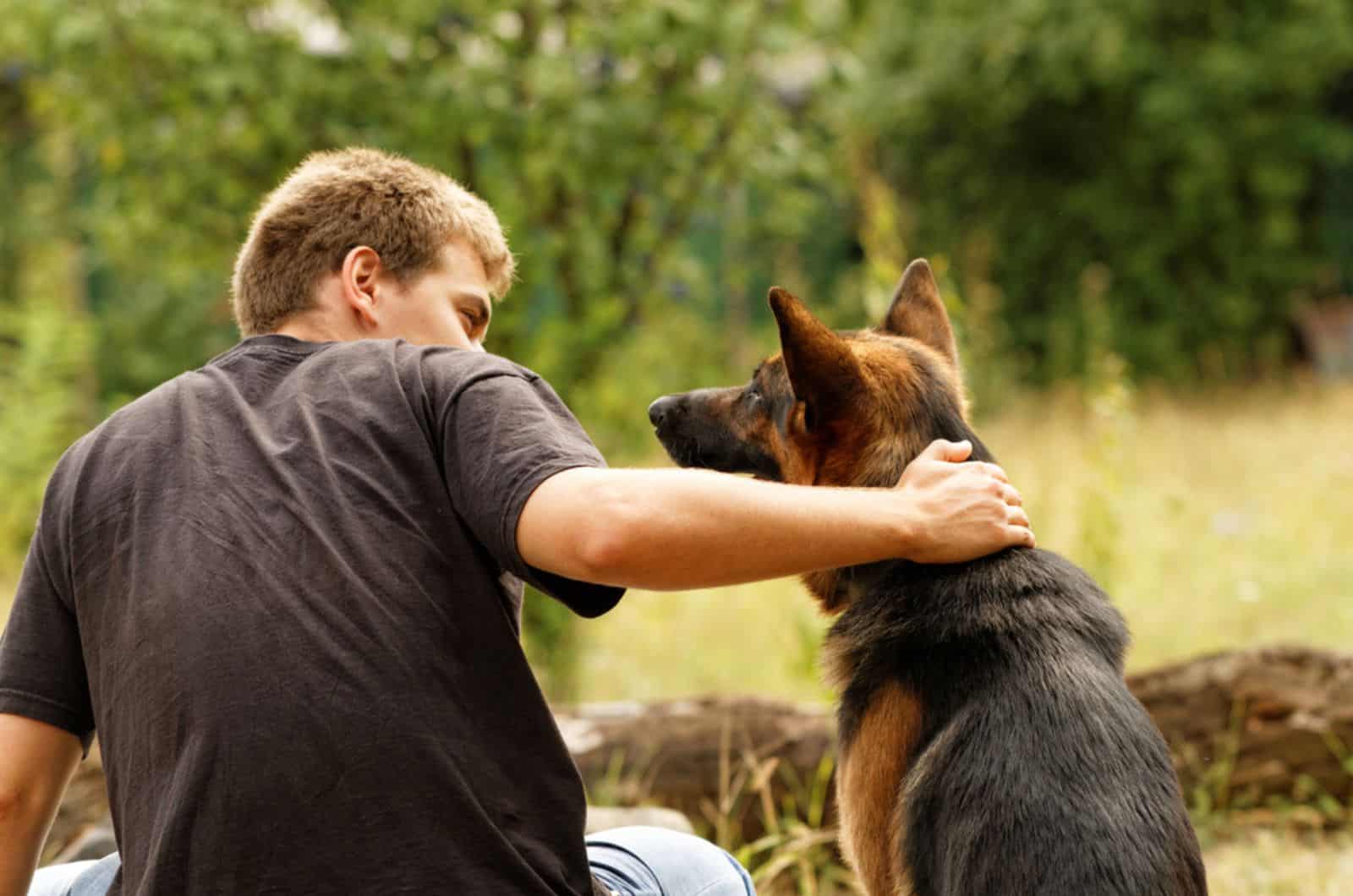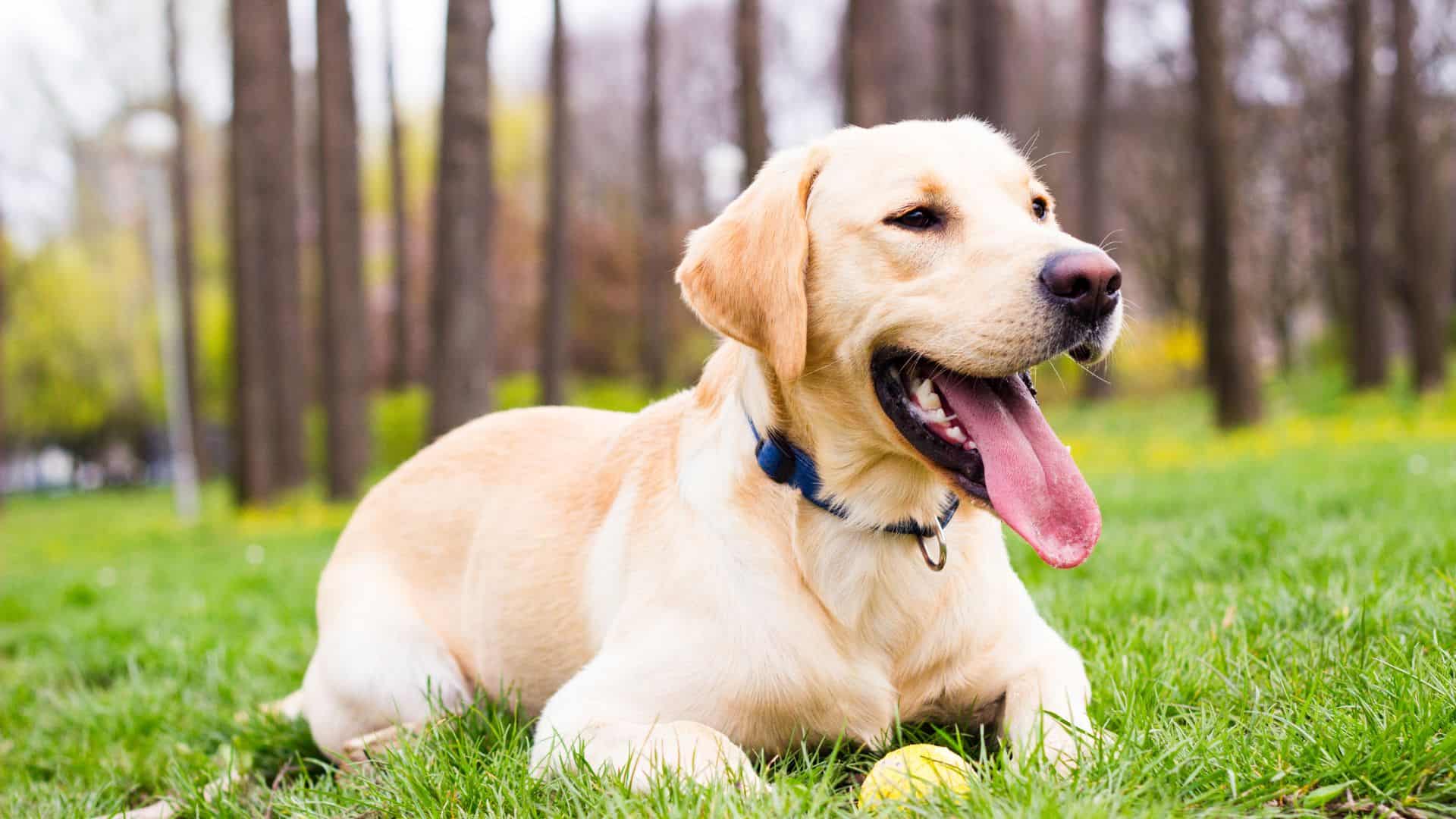GSDs are notoriously difficult to train and you’ll often see people telling you that you need to employ some discipline during said training or you’ll struggle with them later on, but how to discipline a German Shepherd?
In order to learn how to discipline a German Shepherd, you’ll need to figure out what type of discipline resonates the best with your pooch without leaving too much of a negative backlash.
While this may seem like a monumental task, you’ll still be using methods similar to that of other dog breeds, albeit some of them are more preferred than others for German Shepherd dogs in particular.
Things like tough love do exceptionally well as it helps establish a level of respect and authority without compromising the levels of love and care you have between you and your furry friend.
So, if you’re looking to learn what works best for your German Shepherd, feel free to read on.
How To Discipline A German Shepherd: The Fundamentals
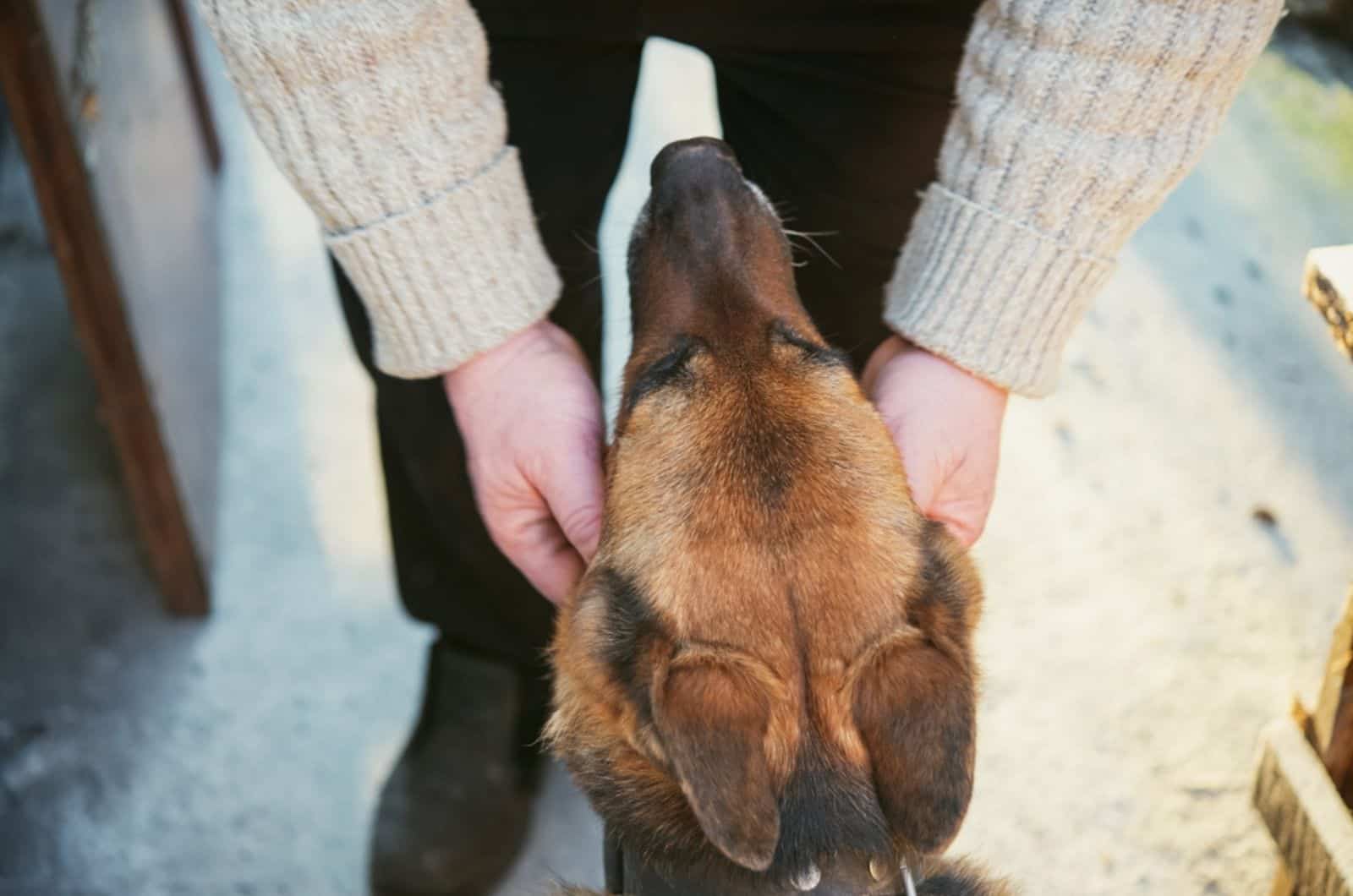
Before we get into the methods, it’s important to understand the GSD’s temperament and the reasons why discipline ends up being necessary to begin with.
The fact is that the German Shepherd is an intelligent, loyal and hard working dog.
However, that intelligence is also the root of their inherent stubbornness as they believe they know better.
They also have their innate desire to be the alpha in any given situation which is why they’ll often challenge you in many aspects, particularly during initial training.
Another big reason for a GSD’s disobedience is often tied to their daily needs, particularly their daily exercise quota.
It’s something that a lot of German Shepherd owners fail to meet at times given the sizable 2 hour minimum requirement which is why I keep saying that, despite its popularity, the German Shepherd isn’t for everyone.
Neglecting their needs for empathy and socialization will also foster negative behavior as their positive means don’t seem to bear fruit in getting them what they want.
This, then can and will become separation anxiety and you’ll experience the downsides of that first hand when some of the things you often interact with end up completely destroyed like pillows, shoes or furniture in particular.
This is all done in order to get you to notice them and will only become worse if their emotional needs aren’t met.
So What Can Be Done About All Of These Problems?
Well, meeting their needs will help curb a lot of this behavior, but discipline is important with any pet if you expect to have little to no issue in your household, and balancing that with empathy can be a challenging task.
What Not To Do When Disciplining A German Shepherd

Before getting to what’s the correct thing to do when you’re searching for discipline, here’s what you shouldn’t do under any circumstance as it’ll only lead to further disobedience or the repeat of his behavior, or worse, a growing divide between the two of you.
1. Don’t Harm Your Dog
The absolute first rule of any dog owner is to never use physical harm as a method of discipline for your pet. It never works and will only make your dog fear you which isn’t something you’re looking for in a bond between pet and owner.
This doesn’t just include hitting your dog either, but starving him or keeping him tied up for long periods of time.
Dog’s don’t have the concept of long form punishment and they won’t end up associating this with what they did being wrong, but rather you being cruel and uncaring, which may even develop toward a hate for you instead of a fear.
2. Don’t Reward Disobedience
Dogs are known to do some dumb stuff every now and then, and we may laugh at it, but that’s not what needs to be done as that’ll lead to the dog thinking it’s okay, and if you punish him the next time he does it, it’ll give him mixed signals.
It’s important to be consistent with your discipline and showing what is and isn’t allowed.
If you don’t want your dog gnawing on you when he’s little, you definitely won’t like it when he’s bigger either, so make an effort to nip the behavior you don’t want to see in him in the bud early.
3. Don’t Yell At Your Dog
Yelling doesn’t accomplish anything positive in German Shepherds or most dogs for that matter.
It only ends up fostering a fearful attitude toward you, though in GSDs it can also lead to your dog acting with aggression to the point where he even bites back at you.
After all, remember that a dog’s ears are sensitive and it’s only causing them unnecessary distress.
Plus, if you make it a habit of yelling at them too often, they’ll become numb to your commands which can make any further training attempts nigh impossible to bear any fruit.
They’ll respond to clearly given commands much better, ones spoken by a resolute person rather than an uncertain one.
4. Don’t Feel Guilty About A Disciplinary Measure
Finally, you don’t want to end up going back on whatever method of discipline you’ve used for some particularly bad behavior.
If you’re punishing them, be thorough and resolute in your behavior, going back on it minutes later and coming back with an even bigger reward will only end up encouraging the bad behavior again which is something that we’re trying to avoid.
Okay, So How To Discipline A German Shepherd Dog Properly Then?
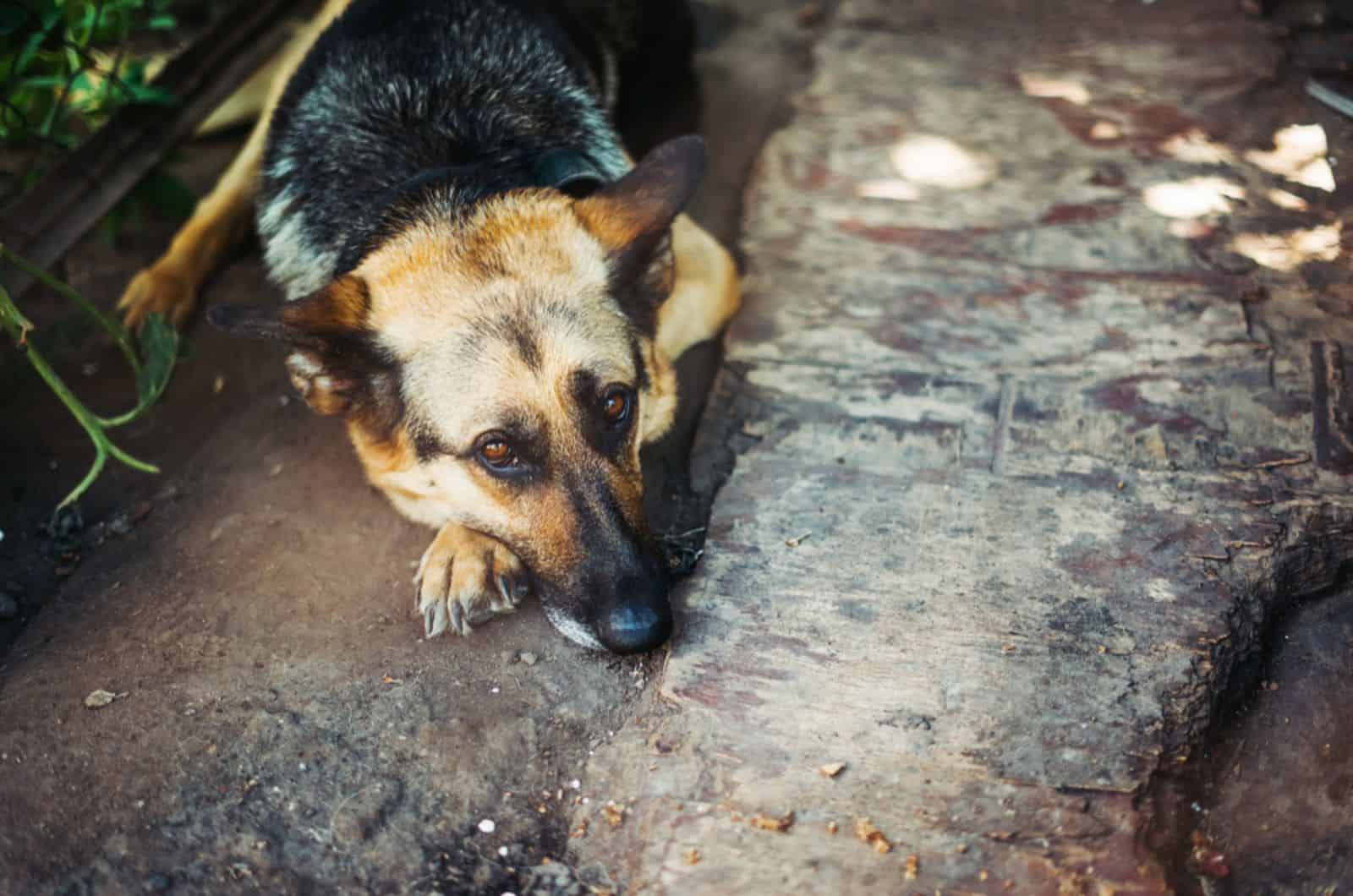
Well, there are plenty of effective methods to do so, ones that don’t require any sort of force other than your force of will, and ones that aren’t all that demanding either contrary to what many people say about a GSDs training.
1. Use Positive Reinforcement
Positive reinforcement is one of the most effective techniques during GSD training.
It helps the dog familiarize itself with what you’re trying to teach it through a given command in the way of giving it treats, a toy, or something similarly positive.
2. Don’t Pay Any Attention To His Begging And Pleading
The main rule of tough love is to not relent and to be adamant in your decision, meaning that you’ll often need to ignore your dog’s whining and begging and many other ways that attempt to get your attention if it relates to bad behavior.
This further enforces the fact that you’re the dominant of the household and that your decision is final.
Your dog will grow to understand this in time and will later look toward you as the leader whenever a new conundrum arises.
3. Redirect The German Shepherd’s Behavior
Another great option is to divert your dog’s attention from committing bad behavior to something else.
If you see your dog in the process of trying to commit a bad act, quickly get him to focus on something else so he forgets about the bad behavior he was likely to commit.
While this isn’t a great long term solution, it does help prevent it temporarily and aids the other methods in ousting the bad acts after training is fully complete.
Read More: Can German Shepherds Live In Apartments? 9 Things To Know
4. Be Firm In Your Tone
Should your dog do something bad, it’s important that you stand your ground and have a firm and consistent tone of voice when telling them that what they did was wrong.
Something that’ll be recognizable to them that they’ll learn to react to the moment the words come out of your mouth.
It does tie to the previous methods too, but it’s an important skill to have and one that needs to be trained as often as your doggo.
When’s The Best Time To Train My Dog?

With these methods under your belt, it’s also worth knowing that there are times when they are more effective than they normally would be, two times in particular, and those are often the key points in your dog’s life.
Their puppyhood is the most important one, especially the early months where the breeder will have to do the initial training after which you have to see it through to the end after week 8 of your pup’s life.
The second one is their adolescence, the time where they’re just about over a year old when they start getting that rebellious bone in their body.
That’s a time when you’ll need to reaffirm your position as the head of the house and earn your dog’s respect and love.
In Conclusion
To learn how to discipline a German Shepherd, you yourself need to show some discipline on your own.
It’s not particularly difficult to successfully train one once you do, but the hardest part is often sticking to your punishments once you’ve made them as that sense of guilt will often weigh heavy on you.
You need to not relent and you need not resort to any of the aforementioned negative disciplinary measures.
If you can accomplish that, you’re well on your way to having a well-trained German Shepherd. Until next time, pet parents.
RELATED LINKS:
- Fun Facts About German Shepherds That Will Blow Your Mind
- Do German Shepherds Get Along With Other Dogs Or Not?
- Will A German Shepherd Attack A Child? Things You Can Do To Prevent It
- Will A German Shepherd Attack Its Owner? 9 Possible Reasons


